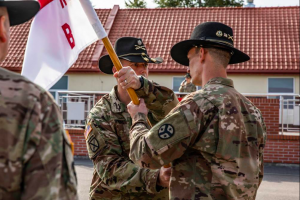
Military Law Attorney Paul Tennison
Many current or former service members and their current or former spouses are generally aware of the Uniformed Services Former Spouses’ Protection Act. However, from my experience in working with military family law matters, it is an area of law that many people misunderstand. The purpose of this article is to help members and former spouses better understand their rights and obligations under the “USFSPA”.
The Uniformed Services Former Spouses’ Protection Act is a federal law codified at 10 U.S.C. § 1408, et. seq. The Act gives state courts the authority to treat disposable retired pay as property of the member and spouse in divorce. In the definitions section of the Act, the law specifies that only “disposable retired pay” as defined in the act is divisible. The Act prescribes important limitations, i.e. it only applies when the spouse or former spouse was married to the service member for at least ten years during which time the member performed at least ten years of service creditable for retired pay. The law does not authorize courts to order any member to apply for retirement at any specific time. All payments under the USFSPA cannot exceed 50 percent of the disposable retired pay of a member. If there is more than one court order, they are satisfied on a “first-come, first-served basis”.
 Cole Law Group Blog
Cole Law Group Blog















 Many service members understand the frustration of being wrongfully denied disability compensation from the Veterans Administration. In my experience I have observed veterans who became frustrated with the process and ultimately gave up. This is most unfortunate. If you have suffered an injury or illness due to your military service, you should be compensated under federal law. However, the failure of many service members to understand the VA system can cause self-inflicted problems.
Many service members understand the frustration of being wrongfully denied disability compensation from the Veterans Administration. In my experience I have observed veterans who became frustrated with the process and ultimately gave up. This is most unfortunate. If you have suffered an injury or illness due to your military service, you should be compensated under federal law. However, the failure of many service members to understand the VA system can cause self-inflicted problems.


